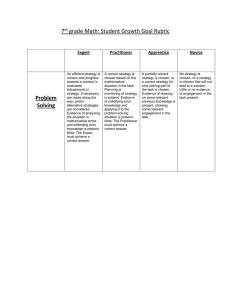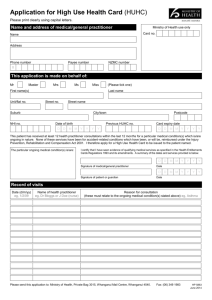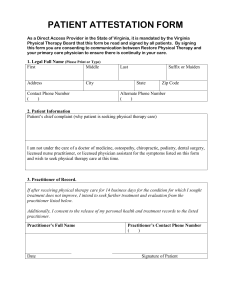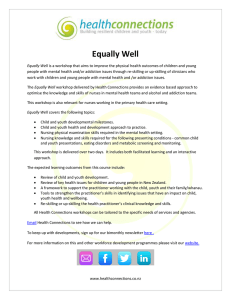The General Medical Council and Nursing and Midwifery Council consultation:
advertisement
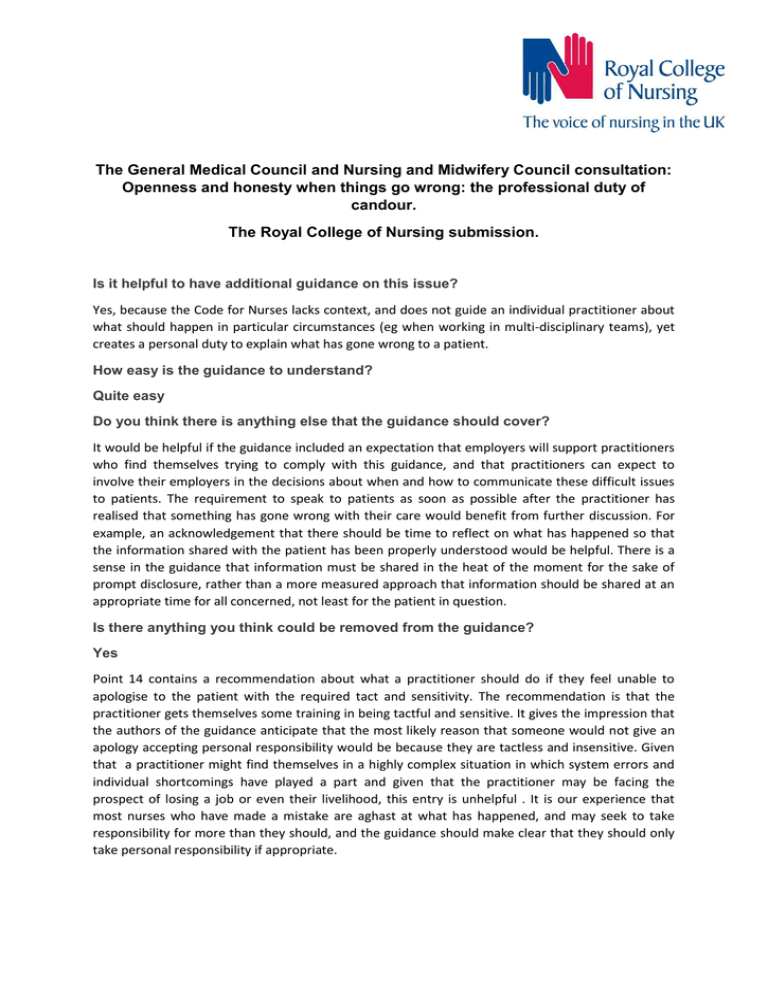
The General Medical Council and Nursing and Midwifery Council consultation: Openness and honesty when things go wrong: the professional duty of candour. The Royal College of Nursing submission. Is it helpful to have additional guidance on this issue? Yes, because the Code for Nurses lacks context, and does not guide an individual practitioner about what should happen in particular circumstances (eg when working in multi-disciplinary teams), yet creates a personal duty to explain what has gone wrong to a patient. How easy is the guidance to understand? Quite easy Do you think there is anything else that the guidance should cover? It would be helpful if the guidance included an expectation that employers will support practitioners who find themselves trying to comply with this guidance, and that practitioners can expect to involve their employers in the decisions about when and how to communicate these difficult issues to patients. The requirement to speak to patients as soon as possible after the practitioner has realised that something has gone wrong with their care would benefit from further discussion. For example, an acknowledgement that there should be time to reflect on what has happened so that the information shared with the patient has been properly understood would be helpful. There is a sense in the guidance that information must be shared in the heat of the moment for the sake of prompt disclosure, rather than a more measured approach that information should be shared at an appropriate time for all concerned, not least for the patient in question. Is there anything you think could be removed from the guidance? Yes Point 14 contains a recommendation about what a practitioner should do if they feel unable to apologise to the patient with the required tact and sensitivity. The recommendation is that the practitioner gets themselves some training in being tactful and sensitive. It gives the impression that the authors of the guidance anticipate that the most likely reason that someone would not give an apology accepting personal responsibility would be because they are tactless and insensitive. Given that a practitioner might find themselves in a highly complex situation in which system errors and individual shortcomings have played a part and given that the practitioner may be facing the prospect of losing a job or even their livelihood, this entry is unhelpful . It is our experience that most nurses who have made a mistake are aghast at what has happened, and may seek to take responsibility for more than they should, and the guidance should make clear that they should only take personal responsibility if appropriate. Do you think there is anything else that doctors, nurses and midwives should consider when apologising to patients or those close to them? A requirement to make a personal apology could put an employee in a situation of tension with their employer and the guidance should include an expectation of support from employers. There should be the option of considering if there could be potential harm caused to the patient by making an apology. To what extent to you agree or disagree that patients should always be told about near misses? Disagree We do not believe that patients should always be told about near misses, but we do agree that a decision about whether to tell them should be made with the careful use of professional judgement about when there will be value to the patient as set out in the guidance document. We also agree that examples could be helpful Do you have any other comments or suggestions about the draft guidance? The ability to recognise when things go wrong and to say ‘Sorry’ are important factors and underpin the openness, trust and confidence in nursing required by the public and the RCN supports the guidance for these reasons. The guidance does need to be very clear about who should disclose information and when the disclosure should be made.


